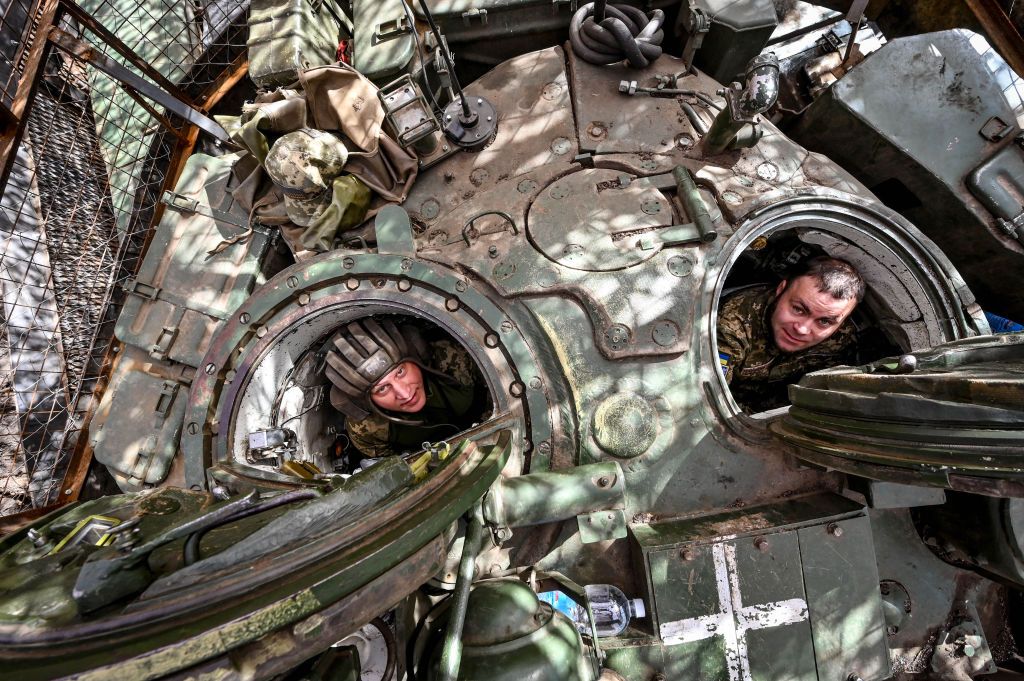Opinion: Europe faces 3 choices in combating the far-right surge
Europe faces three choices in combating the far-right surge: complacency, co-optation, or counterattack.

Jordan Bardella, the president of the French nationalist and right-wing populist party Rassemblement National, speaks to supporters at his final rally ahead of the European Parliament election on June 9, 2024. (Artur Widak/NurPhoto via Getty Images)

Philippe Legrain
Former economic adviser to the European Commission president
Far-right populist parties performed exceptionally well in the European Parliament elections, finishing first in France, Italy, and three other countries. They won nearly a quarter of the seats in the Parliament, just behind the center right.
With Europe already reeling from Russia's war in Ukraine, the threat of a second Donald Trump presidency in the United States, stagnant living standards, strained welfare systems, and extreme weather events, nationalists pose a severe threat. These parties are often sympathetic to Russian President Vladimir Putin and downright hostile to green policies, migrants, and European Union institutions.
Mainstream pro-European parties have three broad options for responding: complacency, co-optation, or counterattack. Let’s start with the case for business as usual. Many Europeans believe – incorrectly – that EU elections are inconsequential. Turnout is much lower than in national elections, and many people cast protest votes, often against governing parties.
Even so, pro-EU parties will still command a majority in the next Parliament. The center-right European People’s Party (EPP), led by European Commission President Ursula von der Leyen, actually gained seats.
Moreover, far-right parties are deeply divided. They are split between two rival parliamentary groups, and some are unattached. They disagree on the Ukraine war, economic policy, LGBTQ rights, and, crucially, whether to work within the EU system or against it. Inevitably, such rifts dilute their influence.
But complacency is dangerous. The center held only because it is defined ever more broadly, encompassing not only the EPP and the Socialists and Democrats (S&D), but also the classical and social liberals of Renew Europe and the Greens. Von der Leyen seemingly has enough votes in Parliament to be re-elected as Commission president – but only just. And anything can happen in a secret ballot. This hardly suggests a strong and stable pro-EU center, especially because the EPP gained ground partly by campaigning against the bloc’s green agenda.
More worryingly, the elections reordered the political landscape in key member states. Despite neo-Nazi tendencies and questionable ties to Russia and China, the extremist Alternative für Deutschland (AfD) finished second in Germany, ahead of Chancellor Olaf Scholz’s Social Democrats (SPD). In France, National Rally won 32% of the vote, more than double that of President Emmanuel Macron’s centrist allies – a crushing defeat that led Macron to call a snap election. Europe’s two most powerful leaders are thus severely weakened, leaving the bloc potentially rudderless in the face of immense economic, security, and climate challenges.
The second option, then, is to accommodate the far right, a common outcome at the national level. Many center-right parties adopt the far right’s language and policies, notably on migration (as do some center-left ones). In several member states, they even govern together.

At the EU level, pragmatists argue that some far-right parties can be brought into the conservative mainstream. Witness von der Leyen’s wooing of Italian Prime Minister Giorgia Meloni, who has fashioned herself as a traditional conservative, despite the neo-fascist roots of her Brothers of Italy (FdI) party, and raised her profile by working with, rather than against, EU institutions. (This is an old trick: after a showdown with EU authorities that almost led to Greece’s ejection from the eurozone in 2015, its hard-left Syriza government was eventually enticed into the pro-EU camp.)
The risk is that the far right co-opts the center right, rather than vice versa. Consider how the EU’s approach to asylum-seekers has shifted from then-German Chancellor Angela Merkel’s welcoming policy in 2015 to near-universal hostility now. Moreover, far-right parties can gain strength as their views become normalized, as evidenced by the victory of Geert Wilders’s Party for Freedom (PVV) in last year’s Dutch general election.
Above all, embracing the far right can backfire spectacularly. Hungarian Prime Minister Viktor Orbán’s Fidesz party, for example, once sat in the EPP; now he is a pro-Putin renegade who treats the rule of law and democratic rights with contempt. And while Meloni may be palatable to some centrists, no one seems eager to work with France’s National Rally, much less Germany’s AfD.
That leaves the third option: fight the far right. Macron has opted to pursue this course by calling a snap legislative election. This is widely viewed as a high-stakes gamble, given Macron’s unpopularity and the electorate’s hostile mood. France could conceivably elect a far-right prime minister in a run-off vote next month. In that case, Macron would become a lame duck for his remaining three years in office.
But his position was severely weakened in any case, and his governing coalition, which lacks a parliamentary majority, was at risk of losing a no-confidence vote. By dissolving the National Assembly, Macron has regained the initiative, creating two possible paths for defeating the far right.
For one, the campaign may focus voters’ attention on the far-right threat, which could help Macron cobble together a parliamentary majority comprising left and right parties united in their desire to keep the National Rally at bay. Given Macron’s unpopularity, this seems somewhat unlikely.
More plausibly, Macron could set up the far right to fail. Populists tend to perform best when they are outsiders challenging established parties, not wielding responsibility. Observe how Conservatives in the United Kingdom, having delivered on their Brexit promise, have been skewered by the reality of it, while the popularity of Wilders’ PVV has already dipped now that it is in government.
If the National Rally wins a majority, or ends up leading a broader right-wing coalition, it would likely struggle with the harsh responsibilities of governing – such as difficult fiscal decisions, and whether and how to cooperate with EU institutions. Moderating its hardline policies could erode its anti-establishment edge; enacting them could plunge the country into crisis. Either way, this could undermine the popularity of its leader, Marine Le Pen, ahead of her likely presidential run. Better a far-right prime minister in 2024 than a far-right president in 2027.
Editor’s Note: The opinions expressed in the op-ed section are those of the authors and do not purport to reflect the views of the Kyiv Independent.











